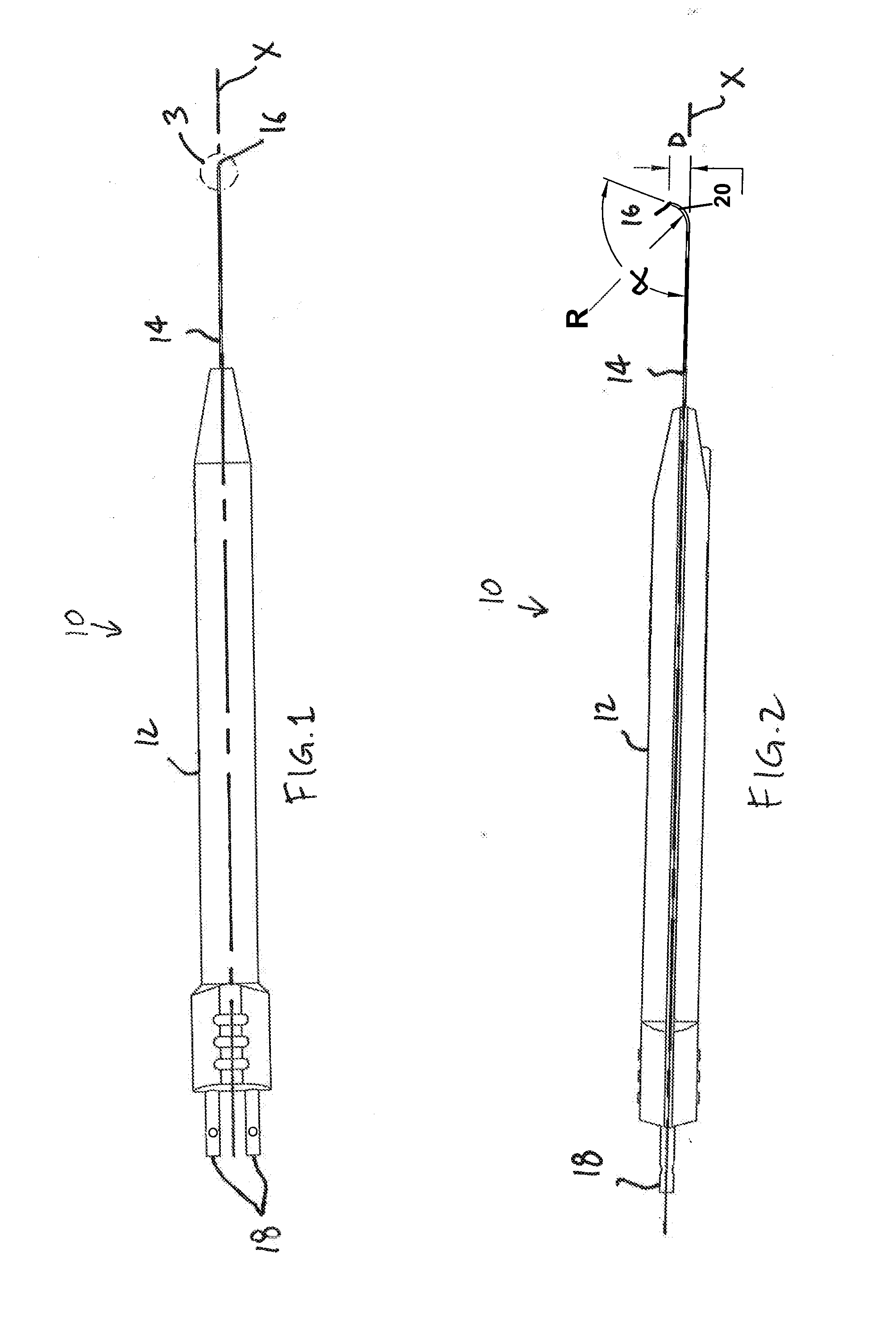Method of, and device for, marking a patient's eye for reference during a toric lens implantation procedure
a toric lens and eye reference technology, applied in the field of toric lens implantation procedures, can solve the problems of large cylindrical correction, increased error, and increased thickness of the marker, and achieve the effect of minimal eccentric reference marks and small thickness
- Summary
- Abstract
- Description
- Claims
- Application Information
AI Technical Summary
Benefits of technology
Problems solved by technology
Method used
Image
Examples
Embodiment Construction
[0017]With reference to the figures, an electrocautery device 10 is shown which generally includes a handle 12, a shaft 14 extending from the handle 12, and a tip 16 defined at the terminus of the shaft 14, The device 10 is particularly well-suited for use during a toric lens implantation procedure, as described herein, but may have application elseWhere, as will be appreciated by those skilled in the art.
[0018]The device 10 is configured to cauterize tissue upon sufficient contact with the tip 16. Various electrocautery devices are known in the art including devices sold under the tradename “WET-FIELD® ERASER®” by Beaver-Visitec International, Inc. of Waltham, Mass. The device 10 may, be provided with bipolar diathermy capability, or other features, The shaft 14, including the tip 16, may be provided in various gauges, but preferably a smaller-diameter gauge is provided, such as a 20-27 gauge, more preferably, a 23-25 gauge, and even more preferably, a 25 gauge design is provided. ...
PUM
 Login to View More
Login to View More Abstract
Description
Claims
Application Information
 Login to View More
Login to View More - R&D
- Intellectual Property
- Life Sciences
- Materials
- Tech Scout
- Unparalleled Data Quality
- Higher Quality Content
- 60% Fewer Hallucinations
Browse by: Latest US Patents, China's latest patents, Technical Efficacy Thesaurus, Application Domain, Technology Topic, Popular Technical Reports.
© 2025 PatSnap. All rights reserved.Legal|Privacy policy|Modern Slavery Act Transparency Statement|Sitemap|About US| Contact US: help@patsnap.com



